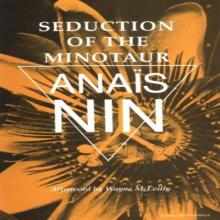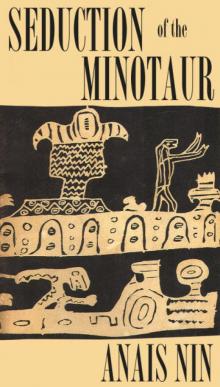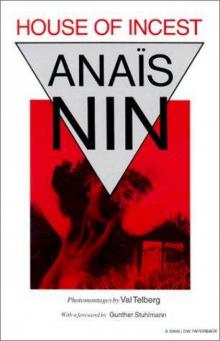The Four-Chambered Heart Read online
Page 3
But it had not made of him an artist.
It had been like a mirage, stealing him from other lives, depriving him of ranch, of luxury, of parents, of marriage and children, to make of him a nomad, a wanderer, a restless, homeless one who could never go home again: “Because I am ashamed, I have nothing to show, I would be coming back as a beggar.”
The little blue flame of music and poetry shone only at night, during the long nights of love, that was all. In the daytime it was invisible. As soon as day came, his body rose with such strength that she thought: he will conquer the world.
His body—which had not been chiseled like a city man’s, not with the precision and finesse of some highly finished statue, but modeled in a clay more massive, more formless too, cruder in outline, closer to primitive sculpture, as if it had kept a little of the heavier contours of the Indian, of animals, of rocks, earth, and plants.
His mother used to say: “You don’t kiss me like a boy, but like a little animal.”
He began his day slowly, like a cub, rubbing his eyes with closed fists, yawning with eyes closed, a humorous, a sly, upward wrinkle from mouth to high cheekbone, all his strength, as in the lion, hiden in a smooth form, no visible sign of effort.
He began his day slowly, as if man’s consciousness were something he had thrown off during the night, and had to be recovered like some artificial covering for his body.
In the city, this body made for violent movements, to leap, to face a danger of some kind, to match the stride of a horse, was useless. It had to be laid aside like a superfluous mantle. Firm muscles, nerves, instincts, animal quickness were useless. It was the head which must awaken, not the muscles and sinews. What must awaken was awareness of a different kind of danger, a different kind of effort, all of it to be considered, matched, mastered in the head, by some abstract wit and wisdom.
The physical euphoria was destroyed by the city. The supply of air and space was small. The lungs shrank. The blood thinned. The appetite was jaded and corrupt.
The vision, the splendor, the rhythm of the body were instantly broken. Clock time, machines, auto horns, whistles, congestion, caught man in their cogs, deafened, stupefied him. The city’s rhythm dictated to man; the imperious order to remain alive actually meant to become an abstraction.
Rango’s protest was to set out to deny and destroy the enemy. He set out to deny clock time and he would miss, first of all, all that he reached for. He would make such detours to obey his own rhythm and not the city’s that the simplest act of shaving and buying a steak would take hours, and the vitally important letter would never be written. If he passed a cigar store, his habit of counter-discipline would be stronger than his own needs and he would forget to buy the cigarettes he craved, but later when about to reach the house of a friend for lunch he would make a long detour for cigarettes and arrive too late for lunch, to find his angry friend gone, and thus once more the rhythm and pattern of the city were destroyed, the order broken, and Rango with it, Rango left without lunch.
He might try to reach the friend by going to the café, would find someone else and fall into talk about bookbinding and meanwhile another friend was waiting for Rango at the Guatemalan Embassy, waiting for his help, his introduction, and Rango never appeared, while Zora waited for him at the hospital, and Djuna waited for him in the barge, while the dinner she had made spoiled on the fire.
At this moment Rango was standing looking at a print on the bookstalls, or throwing dice over a café counter to gamble for a drink, and now that the city’s pattern had been destroyed, lay in shambles, he returned and said to Djuna: “I am tired.” And laid a despondent, a heavy head on her breasts, his heavy body on her bed, and all his unfulfilled desires, his aborted moments, lay downwith him like stones in his pockets, weighing him down, so that the bed creaked with the inertia of his words: “I wanted to do this, I wanted to do that, I want to change the world, I want to go and fight, I want…”
But it is night already, the day has fallen apart, disintegrated in his hands. Rango is tired, he will take another drink from the little barrel, eat a banana, and start to talk about his childhood, about the bread tree, the tree of the meadows that kill, the death of the little Negro boy his father had given him for his birthday, a little Negro boy who had been born the same day as Rango, but in the jungle, and who would be his companion on hunting trips, but who died almost immediately from the cold up in the mountains.
Thus at twilight when Rango had destroyed all order of the city because the city destroyed his body, and the day lay like a cemetery of negations, of rebellions and abortions, lay like a giant network in which he had tangled himself as a child tangles himself in an order he cannot understand, and is in danger of strangling himself…then Djuna, fearing he might suffocate, or be crushed, would tenderly seek to unwind him, just as she picked up the pieces of his broken glasses to have them made again…
They had reached a perfect moment of human love. They had created a moment of perfect understanding and accord. This highest moment would now remain as a point of comparison to torment them later on when all natural imperfections would disintegrate it.
The dislocations were at first subtle and held no warning of future destruction. At first the vision was clear, like a perfect crystal. Each act, each word would be imprinted on it to shed light and warmth on the growing roots of love, or to distort it slowly and corrode its expansion.
Rango lighting the lantern for her arrival, for her to see the red light from afar, to be reassured, incited to walk faster, elated by this symbol of his presence and his fervor. His preparing the fire to warm her… These rituals Rango could not sustain, for he could not maintain the effort to arrive on time since his lifelong habit had created the opposite habit: to elude, to avoid, to disappoint every expectation of others, every commitment, every promise, every crystallization.
The magic beauty of simultaneity, to see the loved one rushing toward you at the same moment you are rushing toward him, the magic power of meeting exactly at midnight to achieve union, the illusion of one common rhythm achieved by overcoming obstacles, deserting friends, breaking other bonds—all this was soon dissolved by his laziness, by his habit of missing every moment, of never keeping his word, of living perversely in a state of chaos, of swimming more naturally in a sea of failed intentions, broken promises, and aborted wishes.
The importance of rhythm in Djuna was so strong that no matter where she was, even without a watch, she sensed the approach of midnight and would climb on a bus, so instinctively accurate that very often as she stepped off the bus the twelve loud gongs of midnight would be striking at the large station clock.
This obedience to timing was her awareness of the rarity of unity between human beings. She was fully, painfully aware that very rarely did midnight strike in two hearts at once, very rarely did midnight arouse two equal desires, and that any dislocation in this, any indifference, was an indication of disunity, of the difficulties, the impossibilities of fusion between human beings.
Her own lightness, her freedom of movement, her habit of sudden vanishings made her escapes more possible, whereas Rango, on the contrary, had never been known to leave except when the bottles, the people, the night, the café, the streets were utterly empty.
But for her, his inability to overcome the obstacles which delayed him lessened the power of his love.
Little by little, she became aware that he had two fires to light, one at home for Zora, and one on the barge. When he arrived late and wet, she was moved by his tiredness and her awareness of his burdens at home, and she began to light the fire for him.
He loved to sleep late, while she would be awakened by the passing of coal barges, by foghorns, and by the heavy traffic over the bridge. So she would dress quietly and she would run to the café at the corner and return with coffee and buns to surprise him on awakening.
“How human you are, Djuna, how warm and human…”
“But what did you expect me to be?”
“Oh, you look as if the very day you were born you took one look at the world and decided to live in some region between heaven and earth which the Chinese called the Wise Place.”
The immense clock on the Quai d’Orsay station which sent people traveling, showed such an enormous, reproachful face in the morning: it is time to take care of Zora, it is time to take care of your father, it is time to return to the world, time time time…
As she knew how much she had loved to see the red lantern gleaming behind the window of the barge as she walked toward it, when Rango fell back into his habit of lateness, it was she who lit the lantern for him, mastering her fear of the dark barge, the drunken watchman, the hobos asleep, the moving figures behind the trees.
When she discovered how strong was his need of wine, she never said: don’t drink. She bought a small barrel at the flea market, had it filled with red wine, and placed it at the head of the bed within reach of his hand, having faith that their life together, their adventures together, and the stories they told each other to pass the time, would soon take the place of the wine. Having faith that their warmth together would take the place of the warmth of the wine, believing that all the natural intoxications of caresses would flow from her and not the barrel…
Then one day he arrived with a pair of scissors in his pocket. Zora was in the hospital for a few days. It was she who always cut his hair. He hated barbers. Would Djuna like to cut his hair?
His heavy, his brilliant, his curling black hair, which neither water nor oil could tame. She cut it as he wished, and felt, for a moment, like his true wife.
Then Zora returned home, and resumed her care of Rango’s hair.
And Djuna wept for the first time, and Rango did not underst
and why she wept.
“I would like to be the one to cut your hair.”
Rango made a gesture of impatience. “I don’t see why you should give that any importace. It doesn’t mean anything. I don’t understand you at all.”
If it were not for music, one could forget one’s life and be born anew, washed of memories. If it were not for music one could walk through the markets of Guatemala, through the snows of Tibet, up the steps of Hindu temples, one could change costumes, shed possessions, retain nothing of the past.
But music pursues one with some familiar air and no longer does the heart beat in an anonymous forest of heartbeats, no longer is it a temple, a market, a street like a stage set, but now it is the scene of a human crisis reenacted inexorably in all its details, as if the music had been the score of the drama itself and not its accompaniment.
The last scene between Rango and Djuna might have faded into sleep, and she might have forgotten his refusal to let her cut his hair once more, but now the organ grinder on the quay turned his handle mischievously, and aroused in her the evocation of another scene. She would not have been as disturbed by Rango’s evasiveness, or his defense of Zora’s rights to the cutting of his hair, if it had not added itself to other scenes which the organ grinder had attended with similar tunes, and which he was now recreating for her, other scenes where she had not obtained her desire, had not been answered.
The organ grinder playing Carmen took her back inexorably like an evil magician to the day of her childhood when she had asked for an Easter egg as large as herself, and her father had said impatiently: “What a silly wish!” Or to another time when she had asked him to let her kiss his eyelids, and he had mocked her, or still another time when she had wept at his leaving on a trip and he had said: “I don’t understand your giving this such importance.”
Now Rango was saying the same thing: “I don’t understand why you should be sad at not being able to cut my hair any longer.”
Why could he not have opened his big arms to her, sheltered her for an instant and said: “It cannot be, that right belongs to Zora, but I do understand how you feel, I do understand you are frustrated in your wish to care for me as a wife…”
She wanted to say: “Oh, Rango, beware. Love never dies of a natural death. It dies because we don’t know how to replenish its source, it dies of blindness and errors and betrayals. It dies of illnesses and wounds, it dies of weariness, of witherings, of tarnishings, but never of natural death. Every lover could be brought to trial as the murderer of his own love. When something hurts you, saddens you, I rush to avoid it, to alter it, to feel as you do, but you turn away with a gesture of impatience and say: ‘I don’t understand.’”
It was never one scene which took place between human beings, but many scenes converging like great intersections of rivers. Rango believed this scene contained nothing but a whim of Djuna’s to be denied.
He failed to see that it contained at once all of Djuna’s wishes which had been denied, and these wishes had flown from all directions to meet at this intersection and to plead once more for understanding.
All the time that the organ grinder was unwinding the songs Carmen in the orchestra pit of this scene, what was conjured was not this room in a barge, and these two people, but a series of rooms and a procession of people, accumulating to reach immense proportions, accumulating analogies and repetitions of small defeats until it contained them all, and the continuity of the organ grinder’s accompaniment welded, compressed them all into a large injustice. Music expanding the compressed heart created a tidal wave of injustice for which no Noah’s Ark had ever been provided.
The fire sparkled high; their eyes reflected all its dances joyously.
Djuna looked at Rango with a premonition of difficulties, for it so often happened that their gaiety wakened in him a sudden impulse to destroy their pleasure together. Their joys together never a luminous island in the present but stimulating his remembrance that she had been alive before, that her knowledge of caresses had been taught to her by others, that on other nights, in other rooms, she had smiled. At every peak of contentment she would tremble slightly and wonder when they would begin to slide into torment.
This evening the danger came unsuspected as they talked of painters they liked, and Rango said suddenly: “And to think that you believed Jay a great painter!”
When she defended a friend from Rango’s irony and wit it always aroused his jealousy, but to defend an opinion of a painter, Djuna thought, could be achieved without danger.
“Of course, you’ll defend Jay,” said Rango, “he was a part of your former life, of your former values. I will never be able to alter that. I want you to think as I do.”
“But Rango, you couldn’t respect someone who surrendered an opinion merely to please you. It would be hypocrisy.”
“You admire Jay as a painter merely because Paul admired him. He was Paul’s great hero in painting.”
“What can I say, Rango? What can I do to prove to you that I belong to you? Paul is not only far away but you know we will never see each other again, that we were not good for each other. I have completely surrendered him, and I could forget him if you would let me. You are the one constantly reminding me of his existence.”
At these moments Rango was no longer the fervent, the adoring, the warm, the big, the generous one. His face would darken with anger, and he made violent gestures. His talk became vague and formless, and she could barely catch the revealing phrase which might be the key to the storm and enable her to abate or deflect it.
A slow anger at the injustice of the scene overtook her. Why must Rango use the past to destroy the present? Why did he deliberately seek torment?
She left the table swiftly, and climbed to the deck. She sat near the anchor chain, in the dark. The rain fell on her and she did not feel it; she felt lost and bewildered.
Then she felt him beside her. “Djuna! Djuna!”
He kissed her, and the rain and the tears and his breath mingled. There was such a desperation in his kiss that she melted. It was as if the quarrel had peeled away a layer and left a core like some exposed nerve, so that the kiss was magnified, intensified, as if the pain had made a fine incision for the greater penetration of pleasure.
“What can I do?” she murmured. “What can I do?”
“I’m jealous because I love you.”
“But Rango, you have no cause for jealousy.”
It was as if they shared his illness of doubt and were seeking a remedy, together.
It seemed to her that if she said, “Jay was a bad painter,” Rango could see the obviousness of such a recantation, its absurdity. Yet how could she restore his confidence? His entire body was pleading for reassurance, and if her whole love was not enough what else could she give him to cure his doubt?
When they returned to the room the fire was low.
Rango did not relax. He found some books piled next to the wastebasket which she had intended to throw away. He picked them up and studied them, one by one, like a detective.
Then he left the ones she had discarded and walked to those aligned on the book shelf.
He picked one up at random and read on the fly leaf: “From Paul.”
It was a book on Jay, with reproductions of his paintings.
Djuna said: “If it makes you happy, you can throw it away with the others.”
“We’ll burn them,” he said.
“Burn them all,” she said with bitterness.
To her this was not only an offering of peace to his tormenting jealousy, but a sudden anger at this pile of books whose contents had not prepared her for moments such as this one. All these novels so carefully concealing the truth about character, about the obscurities, the tangles, the mysteries. Words words words words and no revelation of the pitfalls, the abysms in which human beings found themselves.
Let him burn them all; they deserved their fate.
(Rango thinks he is burning moments of my life with Paul. He is only burning words, words which eluded all truths, eluded essentials, eluded the bare demon in human beings, and added to the blindness, added to the errors. Novels promising experience, and then remaining on the periphery, reporting only the semblance, the illusions, the costumes, and the falsities, opening no wells, preparing no one for the crises, the pitfalls, the wars, and the traps of human life. Teaching nothing, revealing nhing, cheating us of truth, of immediacy, of reality. Let him burn them, all the books of the world which have avoided the naked knowledge of the cruelties that take place between men and women in the pit of solitary nights. Their abstractions and evasions were no armor against moments of despair.)

 Diary of Anais Nin, Volume 5
Diary of Anais Nin, Volume 5 A Spy in the House of Love
A Spy in the House of Love In Favor of the Sensitive Man and Other Essays (Original Harvest Book; Hb333)
In Favor of the Sensitive Man and Other Essays (Original Harvest Book; Hb333) Collages
Collages Seduction of the Minotaur
Seduction of the Minotaur Children of the Albatross
Children of the Albatross Delta of Venus
Delta of Venus The Four-Chambered Heart coti-3
The Four-Chambered Heart coti-3 Diary of Anais Nin, Volume 2
Diary of Anais Nin, Volume 2 Diary of Anais Nin, Volume 1
Diary of Anais Nin, Volume 1 Diary of Anais Nin, Volume 4
Diary of Anais Nin, Volume 4 The Winter of Artifice
The Winter of Artifice Seduction of the Minotaur coti-5
Seduction of the Minotaur coti-5 Children of the Albatross coti-2
Children of the Albatross coti-2 Henry and June: From A Journal of Love -The Unexpurgated Diary of Anaïs Nin (1931-1932)
Henry and June: From A Journal of Love -The Unexpurgated Diary of Anaïs Nin (1931-1932) Ladders to Fire
Ladders to Fire House of Incest
House of Incest